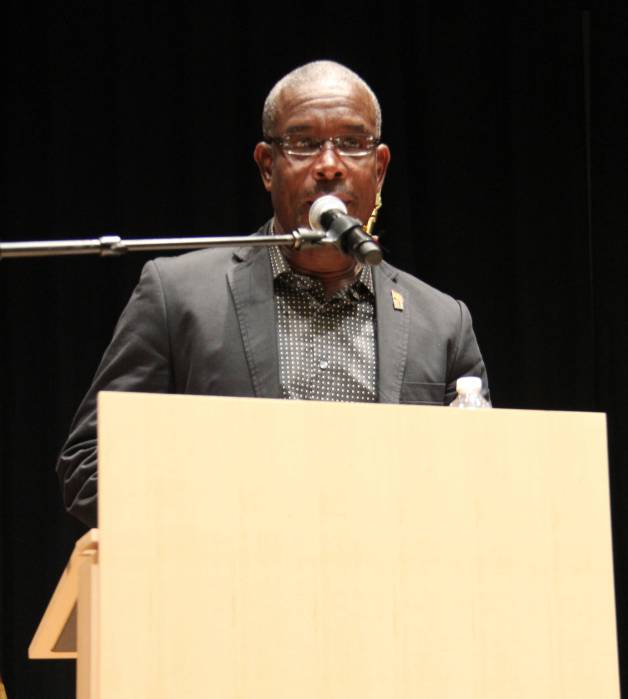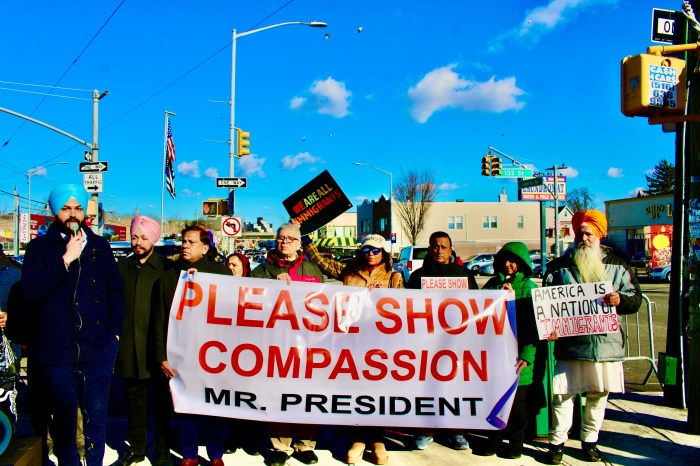New York Attorney General, Letitia James, as part of a coalition of 21 attorneys general, on Wednesday fought back against a new Trump administration rule that will bar tens of thousands of people from the Caribbean and other places from asylum if they did not apply in a third country while en route to the United States.
In an amicus brief, filed in support of the plaintiffs in “Al Otro Lada, et al. v. Wolf,” Attorney General James and the coalition argue in support of asylum-seekers who have already been trapped at the border for months due to what they call “other unlawful policies of the Trump administration.”
The coalition urges the court to uphold a preliminary injunction issued by a lower court that already ruled in favor of the asylum-seekers and asserts that the Trump administration is harming Caribbean and other communities across the country by imposing “dangerous and arbitrary asylum requirements on people fleeing violence and persecution.”
“The Trump administration’s efforts to repeatedly increase the requirements for asylum-seekers to seek refuge has endangered the lives of tens of thousands of individuals,” James said in a statement.
“Instead of welcoming these immigrants, who risked their lives to come to this country, President Trump and his administration remain intent on imposing draconian measures that will send these immigrants back to the danger they came here to escape,” she added. “Our coalition is fighting this policy because the abuse of immigrants should never be used as political fodder to appease the president’s base.”
The lawsuit — brought by nonprofit legal services provider Al Otro Lado — seeks to protect the rights of tens of thousands of individuals who have been unlawfully harmed by the Trump Administration’s “arbitrary changes to the asylum process.”
The case centers on asylum-seekers who sought entry to the United States prior to the administration’s efforts to implement an interim final rule prohibiting these individuals from seeking asylum unless they applied for and were denied protection in at least one country they transited through prior to arrival.
If the Trump administration is successful in this case, James warned that it could result in the denial of or delay of access to the asylum process for at least 26,000 applicants, including parents with infants, unaccompanied minors, and Lesbian, Gay, Bisexual, Transgender and Queer-plus (LGBTQ+) individuals, “whose lives could all be in danger.”
The New York attorney general said the asylum-seekers in this case have already been stuck at the US border as a result of the Trump administration’s “unlawful ‘Turnback Policy.’”
Under the policy, she said border officials have used various methods to deny asylum-seekers access to the asylum process, including misrepresentations, threats and intimidation, coercion, verbal and physical abuse, and “metering” — the practice of putting artificial, daily limits on the number of asylum-seekers allowed to cross the border.
In Wednesday’s amicus brief, the coalition describes the harms the interim final rule could have on both the states and asylum-seekers.
For instance, the coalition points to the lack of access to medical care, drinkable water and appropriate shelter available to asylum seekers, including current examples of people living under tarps, held up only by sticks, as temperatures drop below freezing.
The coalition maintains that allowing the rule to go into effect would harm the states by preventing otherwise-eligible asylum-seekers who could become valuable members of the states’ communities from entering or staying in the country; incentivizing people to dangerously enter the country without inspection, as a direct result of the blocking of critical humanitarian aid; and forcing people to apply for asylum in countries that may be dangerously unequipped to offer adequate protections or services, thereby increasing their eventual need for state-funded services once in the US.
Joining James in filing the amicus brief are the attorneys general of California, Connecticut, Delaware, Hawaii, Illinois, Maine, Maryland, Massachusetts, Michigan, Minnesota, Nevada, New Jersey, New Mexico, Oregon, Pennsylvania, Rhode Island, Vermont, Virginia, Washington, and the District of Columbia.


























